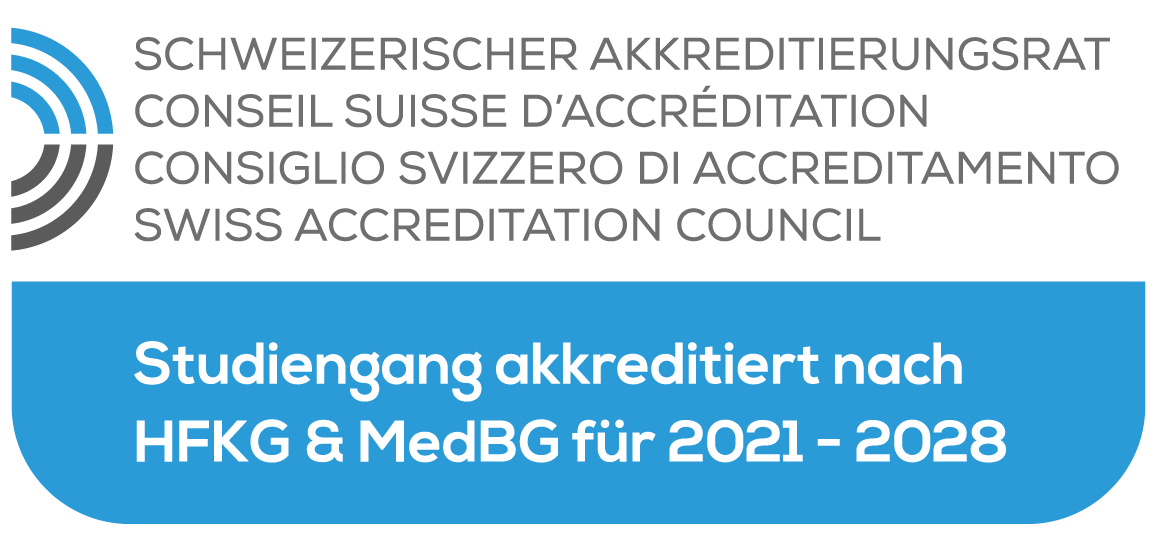Human Medicine
The Bachelor programme focuses on the basic medical sciences. In addition, students learn the basics of doctor-patient communication and clinical examination. They are sensitised to the psychosocial and social dimensions of their future professional practice.
The Master programme focuses on clinical experience. The University of Fribourg offers an innovative programme geared towards family medicine, at the heart of it is the interaction with the patients. Medical students are actively involved in their own learning process and are introduced to the challenges of the medical profession through interactive teaching formats, practical courses, guided self-study and integration into a clinical environment.
Every year, 120 students are admitted to the Bachelor programme and 40 to the Master programme. Inter-university conventions ensure that students can also continue their studies at Master level at the medical faculties in Basel, Bern, Lausanne or Zurich.
Bachelor of Medicine
Master of Medicine
Doctorate in Medicine
Study languages
German and French
Programme structure
360 ECTS credits
12 semesters full-time
Start of studies

-
Training goals and career prospects
training objectives of university training are defined at federal level in the Medical Professions Act. These have been formulated by the faculties in a "catalogue of learning objectives", which describes practical situations that a young doctor should master at the start of their hospital training.
After successfully completing university education, students take the federal examination in human medicine. On passing, they can work as a clinical assistant doctor in hospitals and medical practices and begin further training to become a specialist doctor. Additional training is compulsory for doctors in private practice.
The main professional perspectives are:
-
Independent practitioner: specialist in general medicine or in another specialisation
-
Medical doctor in an employment relationship, usually in a hospital
-
-
-
Freiburg: a good choice
-
-
Broadening of horizons thanks to a bilingual degree programme
-
Inter-university conventions guarantee the continuation of medical studies in Fribourg or at four other Swiss universities
-
-
-
Mission of education in human medicine at the University of Fribourg
mission of basic medical education (BMed and MMed) is to provide the necessary foundations for the practice of human medicine in accordance with the requirements of the Medical Professions Act (MedBG). The Bachelor and Master degree programmes must contribute to the development of students' personality, self-care and social skills to enable them to meet future professional demands and to fulfil the various roles expected of a doctor. Students will need to be able to apply and continuously improve the competences required in their future professional activities. The BMed aims to provided students with the tools to continue their Master studies at the highest level of performance in the various programmes in Switzerland. By providing an in-depth understanding of primary care, the MMed
